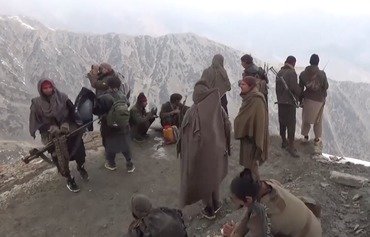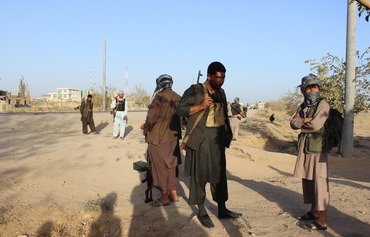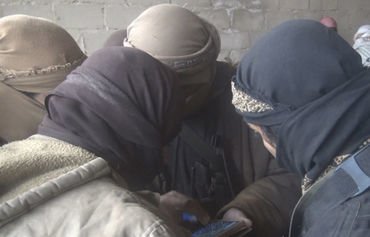The "Islamic State of Iraq and Syria" (ISIS) has suffered heavy defeats since the very beginning of its activities in Afghanistan, and its recent expulsion from the Tora Bora region is the latest blow to the group.
ISIS announced the formation of its Khorasan branch, which operates in Afghanistan and Pakistan, in January 2015.
Initially, the terror group's strategic centre was in Achin District, Nangarhar Province, with smaller groups active in other parts of Afghanistan, Afghan National Army (ANA) Deputy Chief of Staff Gen. Murad Ali Murad said in an April news conference in Kabul.
But ongoing Afghan National Defence and Security Forces (ANDSF) air and ground attacks have laid waste to ISIS's strongholds in Nangarhar, said Murad.
Ministry of Defence spokesman Gen. Dawlat Waziri confirmed that assessment.
"ISIS failed in its plans," he told Salaam Times.
In addition to ISIS's failure to gain control of any substantial territory, the group also has suffered heavy losses in its leadership over the years, Waziri said.
Mullah Abdul Rauf Khadim, the first deputy leader of ISIS Khorasan, was killed on February 9th, 2015, in Helmand Province.
Hafiz Saeed Khan, appointed ISIS Khorasan emir in January 2015, was killed on July 26th, 2016, in Achin District.
ISIS Khorasan leader Abdul Hasib, Khan's successor, met the same fate as the others on April 27th of this year in Nangarhar Province, Afghan and US military officials confirmed.
Plans foiled
ISIS planned to build the headquarters of its Khorasan branch in Nangarhar Province, but operations in the past month have put an end to those ambitions.
The expulsion of ISIS from Tora Bora reportedly happened on June 17th and 18th, according to the Ministry of Defence (MoD), days after ISIS militants fought and defeated the Taliban for strategic caves in Tora Bora.
In turn, Afghan troops fought ISIS and drove it out of Tora Bora and the two other districts. Troops earlier drove ISIS out of Kot and Achin districts.
"All areas of Tora Bora, Pacheragam and Chaparhar have been cleared of ISIS," MoD deputy spokesman Mohammad Radmanesh told Salaam Times. "Troops are busy clearing land mines that the Taliban and ISIS planted."
To prevent ISIS from returning to Tora Bora, authorities are working with local communities, MoD spokesman Waziri told Radio Free Afghanistan.
"Local volunteers and local forces are ready to protect their region against future ISIS incursions," he said. "The Defence Ministry is ready to support them in whatever way possible."
Anti-ISIS operations continue closer to the Pakistani border.
After suffering a number of defeats in Nangarhar, and after the US military dropped its largest conventional bomb on militant networks in April, ISIS has been reduced to scattered, demoralised groups in the province, MoD officials said.
The slain militants represented a motley crew of nationalities, said provincial governor spokesman Ataullah Khogyani.
"The majority of ISIS members killed by Afghan security forces in Tora Bora were foreign fighters from Uzbekistan, Chechnya and Pakistan," he told Salaam Times.
Turf war with Taliban
Taliban and ISIS militants are locked in combat throughout Afghanistan, vying for the ability to extort and plunder the civilian population, officials say.
The two groups have been supporting their terrorist activities by seizing cash and other assets from civilians, said Mohammad Reza Ghafouri, spokesman for the Jawzjan governor.
"Previously the Taliban seized food from residents of our area, three times a day," said Sharifullah, a former resident of Qush Tepa who fled the area and now resides in Kabul. "Now both the Taliban and ISIS do this."
"Each month, every family has to pay at least 500 AFN ($7.35) to both groups," he said, adding that wealthier families are forced to pay more.
"The Taliban used to forcefully collect tithe, alms and religious taxes from residents in areas under their control," he told Salaam Times. "But now, ISIS too have started collecting tithe and alms, which is not acceptable for the Taliban."
Because of this competition to extort money from citizens, he said, "further bloody clashes between the groups are very possible."
"In a month or two, the harvest will start," said Abdul Satar Darzabi, a member of the Afghan parliament representing Darzab. "That's why each group is trying to defeat the other, so that it can collect donations and tax from crops unchallenged."
"Civilians have suffered the most from the actions conducted by ISIS and Taliban militants," he said.

![Afghan security forces patrol during an operation against 'Islamic State of Iraq and Syria' militants in the Chaparhar district of Nangarhar province on May 21st, 2017. [Noorullah Shirzada/AFP]](/cnmi_di/images/2017/07/06/8631-afghan-sec-forces-600_384.jpg)






